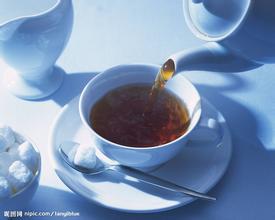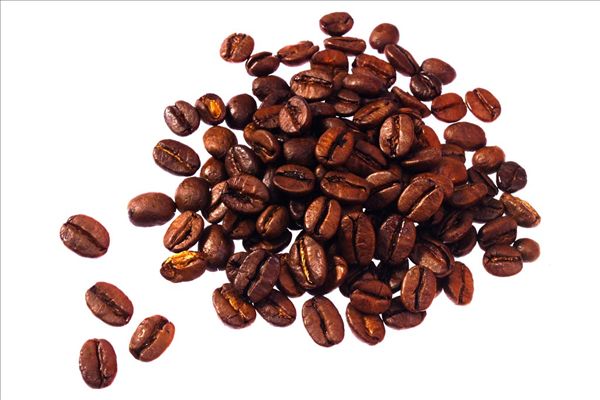Introduction to the Taste of Tanzania Coffee Manor with stimulating Flavor
In October 2000, Mkapa was re-elected president of the United Republic, and Karume, a candidate of the Revolutionary Party, was elected president and repeatedly expressed his position of safeguarding national unity, which further dealt a blow to the separatist forces.
Since 2001, the coalition government has continued to consolidate the situation of unity, maintain the coalition regime, strive for moderate forces, crack down on Zanzibar separatist forces, and take care of the allocation of budget funds and other issues related to Zanzibar's vital interests. Instead of openly advocating secession, URUF demanded that Zanzibar be given more autonomy.
In December 2005, Kikwete was elected President of the United Republic, and Karume was elected President of the United Republic.
In early 2008, the Revolutionary Party and the RUF held negotiations on the establishment of a coalition government in Zanzibar, but no agreement was reached.
In 2009, the joint issue of Tanzania and mulberry has made some progress, but the dispute between the mainland and Sangdao on the ownership of mulberry oil and gas resources has heated up. Political reconciliation negotiations between the Sangdao Revolutionary Party and the main opposition party RUF resumed at the end of the year after a break at the beginning of the year. President Karume of Sang and General Secretary of RUF Hamad held historic talks, which attracted widespread attention from all parties.
In early 2010, there was a new trend of political reconciliation in Sangdao, and the Revolutionary Party and the Public RUF reached an agreement on the formation of a Sangdao unity government. In July of the same year, the Sang referendum passed a resolution on establishing a government system of national unity. In November, the general election of Sang was held smoothly, and the government of national unity was established on Sangdao. President Sang, the second vice president and 11 ministers came from the Revolutionary Party. Sang's first vice president and 8 ministers came from the RUF.
Tanzania's main coffee producing area, located at the foot of Mount Kilimanjaro, is rich in volcanic soil. Some coffee trees planted here are more than 100 years old. Coffee was first introduced by Christians from Kenya to grow coffee. Coffee trees must be carefully taken care of, weeded and fertilized. Moreover, old branches must be cut off so that new branches can grow to maintain the quality of coffee beans. Coffee bean processing plants are well equipped; coffee beans are an important economic crop in Tanzania, and the local government attaches great importance to this industry: raw beans are unbaked beans, which contain 11.5% fat; 11.5% moisture; 28.6% crude fiber; 4.0% minerals; 6.2% tannin. Caffeine 1.3%; essence 17.0%; sugar 8.1%; protein 11.8%.
Baked beans: roasted beans, which contain 13.0% fat; 1.5% caffeine; 29.5% crude fiber; 2.6% moisture; 5.0% minerals; 4.2% tannic acid; 29.4% essence; 2.0% sugar; protein 12.8% Tanzania coffee has the excellent pedigree of the Middle Eastern non-washed bean family, bright acid, rich and irritating flavor. There is no doubt that Kenyan coffee takes the lead in this family, but Tanzania has many advantages that are very similar to those of Kenya.
Round beans are often specially selected and expensive, but sometimes they taste like moldy beans, which is not in line with their price. As we all know, garden beans have become a unique flavor of coffee, and sell well in the United States, favored by many roasters. Tanzania is a potential coffee, but sometimes its flavor is not really shown. One reason is that Tanzania does not have the same road infrastructure as Kenya, and coffee in containers ages (or at a high temperature) during transportation. I often drink very good Tanzanian samples, but sometimes I also drink very bad coffee. The problem is that Tanzania only knows that no matter whether the quality is good or bad, they can make a profit from the beans. So what is the motivation of the local people to pick and take good care of coffee in time to prevent such defective beans?

Important Notice :
前街咖啡 FrontStreet Coffee has moved to new addredd:
FrontStreet Coffee Address: 315,Donghua East Road,GuangZhou
Tel:020 38364473
- Prev

The noble and elegant varieties of Cuban Crystal Mountain Coffee have a taste of fine coffee and beans in the manor.
In 1748, coffee was introduced into Cuba from Domiga, and Cuba began to grow coffee ever since. With fertile land, humid climate and abundant Rain Water, Cuba can be called a natural treasure land for coffee cultivation. The suitable natural conditions provide a favorable natural environment for the growth of coffee trees, and coffee is well planted and developed here. In Cuba, the cultivation of coffee is regulated by the state. Cuba is the best
- Next

Sweet and sour mild Salvadoran coffee varieties taste manor boutique coffee bean flavor
Salvadoran coffee refers to the coffee produced in the small South American country of El Salvador, where the coffee body is light, aromatic, pure, slightly sour, the flavor is extremely balanced, is a specialty of Central America. With sour, bitter, sweet and other taste characteristics, the best baking degree is moderate, deep. The characteristics of Salvadoran coffee are sour, bitter, sweet, mild, moderate and well-balanced.
Related
- Detailed explanation of Jadeite planting Land in Panamanian Jadeite Manor introduction to the grading system of Jadeite competitive bidding, Red bid, Green bid and Rose Summer
- Story of Coffee planting in Brenka region of Costa Rica Stonehenge Manor anaerobic heavy honey treatment of flavor mouth
- What's on the barrel of Blue Mountain Coffee beans?
- Can American coffee also pull flowers? How to use hot American style to pull out a good-looking pattern?
- Can you make a cold extract with coffee beans? What is the right proportion for cold-extracted coffee formula?
- Indonesian PWN Gold Mandrine Coffee Origin Features Flavor How to Chong? Mandolin coffee is American.
- A brief introduction to the flavor characteristics of Brazilian yellow bourbon coffee beans
- What is the effect of different water quality on the flavor of cold-extracted coffee? What kind of water is best for brewing coffee?
- Why do you think of Rose Summer whenever you mention Panamanian coffee?
- Introduction to the characteristics of authentic blue mountain coffee bean producing areas? What is the CIB Coffee Authority in Jamaica?

